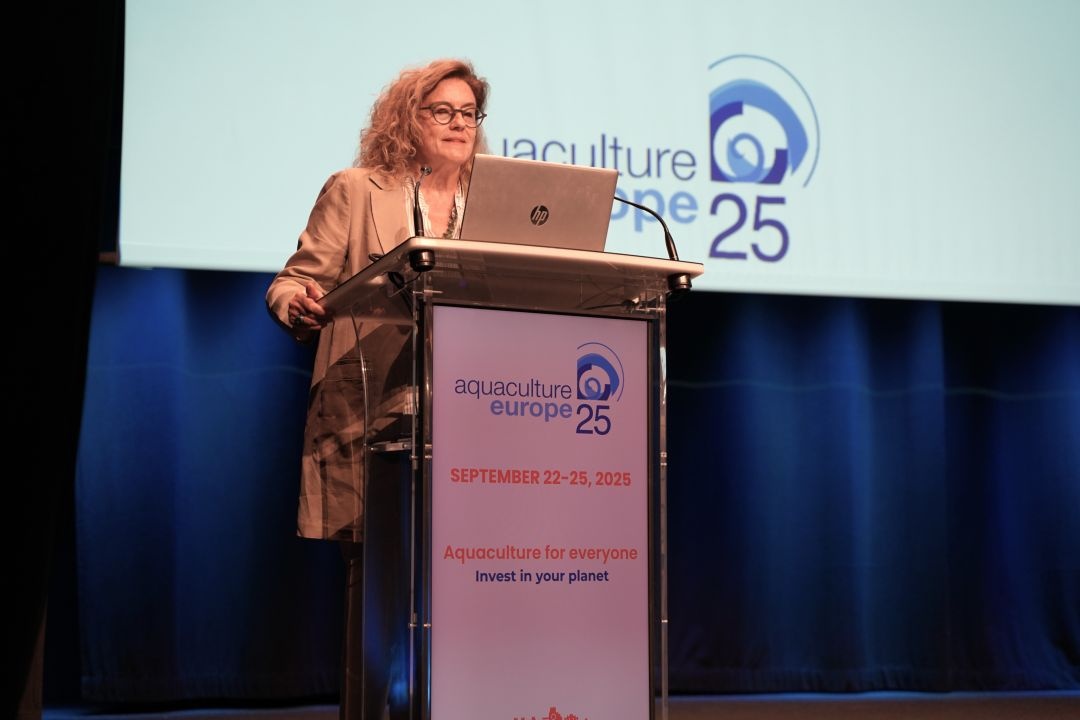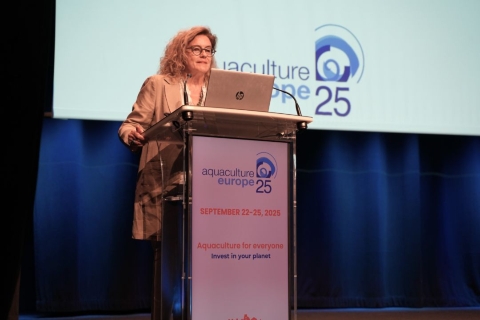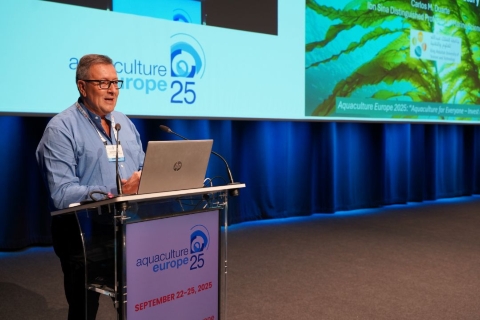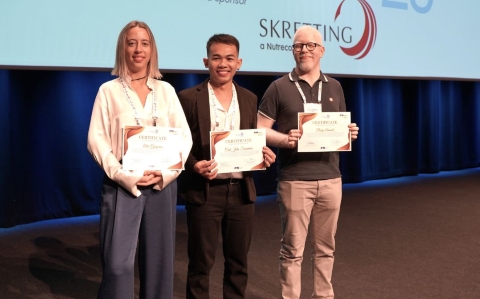
Elisabette Giuffra, a researcher at France’s Institut National de la Richerche pour l’Agriculture, l’Alimentation et l’Environment (INRAE), addressed the Aquaculture Europe 2025 conference in Valencia with a keynote highlighting the importance of combining genomics and phenotyping as essential tool to enhance the sustainability, resilience and competitiveness of the aquaculture sector in the face of future challenges.
Giuffra stressed the urgent need to produce more healthy food with fewer resources, reduce environmental impact, conserve biodiversity and respond to growing societal expectations regarding animal welfare.
One of the central scientific challenges, she explained, lies in deciphering the complex relationship between genotype and phenotype. Understanding how genes connect with observable traits such as disease resistance or robustness under variable environmental conditions is crucial to improving breeding programmes and advancing towards more accurate predictive biology.
“The genome determine the phenotypes, and this happens in every living organism,” she reminded. “If we understand the modifications that occurs in the genome under different environmental conditions, we will be able to better monitor practices and manage aquaculture across different species.”
She pointed the impact of heat stress as an example – a factor of increasing importance in the context of climate change. Knowing how rising temperatures affect economically relevant traits in aquaculture could help design management strategies to mitigate adverse effects and safeguard system productivity.
The researcher also underlines the contribution of European projects such as AquaFAANG, which has generated functional genome maps for key aquaculture species and integrated them into open platforms such as Ensembl. These advances not only enrich basic scientific knowledge but also provide industry with valuable tools to improve efficiency and sustainability.
Another key aspect of her address was the reference to the development of new pan-European research infrastructures. The EuroFAANG consortium concludes it work this year, and the proposed GenoFenix project is currently under review for inclusion in the ESFRI 2026 Roadmap. This initiative aims to consolidate services for phenotyping, biobanking and cellular models applicable to both aquaculture and agriculture, with the goal of equipping scientists and producers with shared resources to accelerate innovation and address the challenges of agri-food transition.
Giuffra also drew attention to the progress behind made in advanced cellular systems such as organoids and organ-on-chip technologies, which allow researchers to study how environmental factors and pathogens influence animal without restoring to in vivo testing. These tools, she noted, support the application of the “3Rs” principles – replacement, reduction and refinement – while opening up new opportunities for investigating traits of interest in aquaculture.
She concluded her talk with a strong call to intensify international collaboration and to overcome reluctance to share data before publication. “The efforts are enormous,” she emphasized. “The more we share what we have and what we are implementing, the more we open ourselves to the future.”



